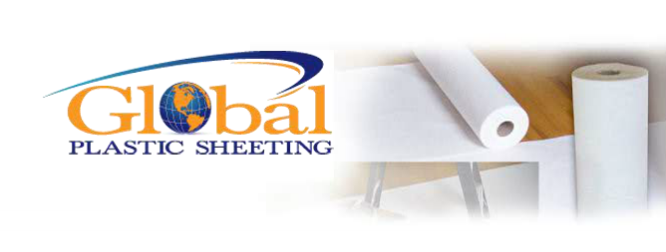Wall Vapor Retarders for Control Air and Vapor Diffusion- Reduce Moisture Infiltration
Vapor Barrier Plastic For Walls
Griffolyn® vapor barriers and vapor retarders can prevent water vapor from causing poor insulation performance, structural damage and other moisture-related problems. The purpose is to help precent water vapor/ moisture from reaching a building's celings, walls, crawlspaces where it can condense and cause the building material to grow mold or rot.
What can I use for vapor barrier on walls? Quality and Material Test Qualifiacations MATTER!
Below are Griffolyn's line of high-quality string reinforced regular and fire retardant wall vapor retarders. The products listed vary in thickness from a 3-ply laminate to a 7-ply laminate.
The Fire Retardant versions pass NFPA 701, Large Scale, UBC 42 and ASTM E 84 Class 84 in various capacities.
Please click on the product name link to visit the product page.
|
PRODUCT NAME |
SHORT DESCRIPTION |
|
Reinforced high density 3 ply. General-purpose that meets the strength & permeance requirements of most applications |
|
|
Reinforced high density 5 ply. Offers greater strength & lower permeance for a higher level of integrity in roofing and under slab applications |
|
|
Reinforced high density 7 ply. Extra strength and extra-low permeance needed to meet additional requirements |
|
|
3 ply. Combines HDPE/LLDPE & aluminum to provide extremely low permeance for special applications such as radon protection, cold storage, museums & computer rooms |
|
|
Reinforced 3 ply. General-purpose fire retardant vapor retarder |
|
|
Reinforced 3 ply. Offers Greater strength and lower permeance. Qualifies as a Class 1 building product |
|
|
Reinforced fire retardant 5 ply. Delivers extra strength and extra-low permeance for applications with extreme temperature variation |
When is a Vapor Retarder AKA Vapor Barrier Required?
A vapor barrier is likely required if the building is cladded with absorptive material and if the structure is in United States climate zones 4C, 5 through 8. If you are building in a colder climate, check local laws or consult with your architect if a vapor barrier is required. Vapor Retarders will benefit your home and protect it from the elements. Various films are tested to understand how much water vapor they will permeate through the film.
2009 and newer editions of the International Code Council (ICC) building codes, summarized:
- The International Residential Code (IRC) defines vapor retarders as Class I, II or III based on how permeable they are to water vapor, the lower the permeability – the less water vapor that will pass through the vapor retarder.
- Class I – Very low permeability vapor retarders – rated at 0.1 perms or less. Sheet polyethylene (visqueen) or unperforated aluminum foil (FSK) are Class I vapor retarders.
- Class II – Low permeability vapor retarders – rated greater than 0.1 perms and less than or equal to 1.0 perms. The kraft facing on batts qualify as a Class II vapor retarder.
- Class III – Medium permeability vapor retarders – rated greater than 1.0 perms and less than or equal to 10 perms. Latex or enamel paint qualify as Class III vapor retarders.
A. ASTM D 882 - Tensile Properties of Thin Plastic Sheeting.B. ASTM D 1709 - Impact Resistance of Plastic Film by the Free-Falling Dart Method.C. ASTM D 2582 - Puncture-Propagation Tear Resistance of Plastic Film and Thin Sheeting.D. ASTM D 3776 - Mass per Unit Area (Weight) of Woven Fabric.E. ASTM D 4833 - Index Puncture Resistance of Geotextiles, Geomembranes, and RelatedProducts.F. ASTM E 84 - Surface Burning Characteristics of Building Materials.G. ASTM E 96 - Water Vapor Transmission of MaterialsH. NFPA 701 - Fire Tests for Flame-Resistant Textiles and Films.1.4



